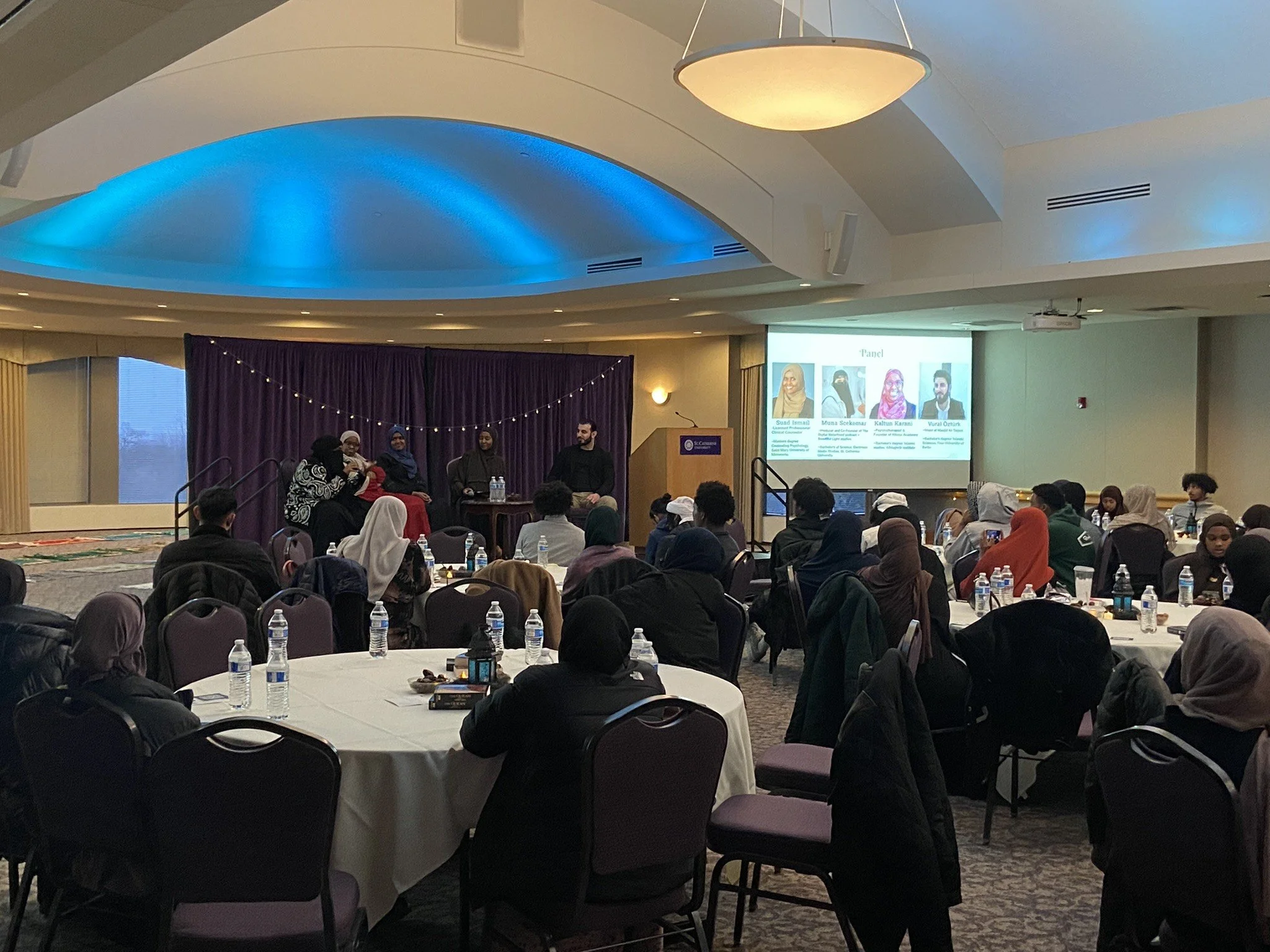ACTC English Majors Conference Brings Together Brilliant Undergraduates Studying the Humanities
“Medicine, law, business, engineering — these are noble pursuits and necessary to sustain life. But poetry, beauty, romance, love — these are what we stay alive for.” —Robin Williams as John Keating in Dead Poets Society
By Natalie Nemes
Quite honestly, there is nothing more terrifying than sharing your ideas. Once you dare to voice your thoughts, they move out of your own headspace into the external hemisphere where they may inspire, shock, bore or even threaten others and their worldviews.
This is the vulnerability of presenting at a conference.
Although reading my paper at the ACTC English Majors Conference on Friday, March 31, wasn’t nearly as high-stakes as penning the groundbreaking work for a new theoretical framework or presenting revolutionary legislation, for example, it still required a certain willingness to expose myself to the judgments of others. Sticking yourself under the proverbial microscope transforms you into the object of scrutiny. And while I wouldn’t consider my ideas about comics and their adaptations profound or even particularly important, they were still a product of passion, stemming from my recent obsession with media analysis and my lifelong obsession with media as a whole — the reason why I became an English major.
So, with these fears rattling around in my brain, I drove to Macalester that Friday with a certain anxiety for what was to come. But in spite of my worries, I eventually found I was enjoying myself. And while what I experienced was nothing life-changing or transformative, it was certainly something important.
Nikkole DeMars ‘23 (English), who presented on the World and Multicultural Literature panel for St. Kate’s, said she was also nervous heading into the conference and that she “wasn’t exactly sure what to expect.” DeMars said she was anxious about the Q&A session that took place at the end of the panel, after each student had finished presenting their papers. “I wasn’t certain what to expect for, you know, questions that people might have.”
Despite her initial anxieties, DeMars found that the panel audience fostered an environment that “didn’t feel intimidating.” “Everybody was very supportive — faculty members, the moderator and all of the students in the audience as well,” she said.
The ACTC English Majors Conference program. Credit: Taiyon Coleman and Kristen Lillvis
In addition to the panel I presented at, British and Irish Literature, I was able to attend the American Literature session scheduled for later in the day. The discussion that took place during the open forum was particularly provocative, as eventually talk turned to one of the most pressing issues facing humanities scholars today: AI and authorship.
“I was very happy to hear stuff like that [authorship in the digital age and ChatGPT] because I think a lot of the humanities majors can get a little bit stuck in the past because that’s basically what we study, is stuff that already exists,” said Fern Schiffer ‘25 (English), the St. Kate’s student who presented at the American Literature panel. “So having a forward-looking discussion was very, very good.”
Both DeMars and Schiffer enjoyed hearing from other presenters. On the World and Multicultural Panel, DeMars noticed, “All of us as writers — we were very connected to our topics.” Each of the pieces were emotional and were interconnected through that emotion, she said, even though students presented on a diverse range of subjects.
Me, reading my paper! Credit: Taiyon Coleman and Kristen Lillvis
When asked, Schiffer pointed to a handful of pieces that they particularly liked, including an analysis of the poem “The Wanderer,” a comparison of feminist poems that contained figurative language surrounding water and a paper that explored female development and sexuality as portrayed in Sheridan Le Fanu’s “Carmilla” and Bram Stoker’s “Dracula.”
DeMars and Schiffer each recommended the experience for other St. Kate’s students. “It wasn’t competitive; it wasn’t intimidating. I think just being around students, other students like myself, made it very, very comfortable,” DeMars said.
Schiffer said the conference could be a networking opportunity and highlighted its accessibility. “It feels like you’re talking to your colleagues, not like you’re talking to, like, your superiors,” they said. “It’s a good feeling. Other English majors and humanities majors should definitely consider doing stuff like this.”
If I could point to one reason why I would suggest others take the leap and present at a conference if they are ever afforded the opportunity, it would be the validation of discovering likeminded individuals. It’s scary to put your work on display, sure — but it ultimately reaps great rewards. There is nothing quite like participating in an environment that celebrates ideas.
And in a world where the humanities are considered increasing obsolete, where technology seems to be evolving faster than an artist’s ability to stay relevant, where practicality and financial stability have replaced romanticism and creative thinking, where The New Yorker publishes an article called “The End of the English Major” — there has never been a more desperate need for spaces where arts and humanities scholars can share their enthusiasm for their disciplines.








